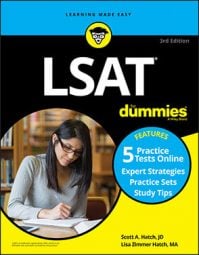Sometimes lawyers want to bolster their arguments, and the LSAT may test your ability to do so. They look for evidence, court decisions, and laws that support the claims they’re making. Spotting evidence that can support an argument is a real skill; law schools teach it, but they want their students to arrive already understanding the basic concept. That’s why the LSAT includes logical reasoning on the test.
The logical reasoning section includes some questions that ask you to pick answers that can strengthen the argument. The questions may use the word strengthen, but they may also ask you to support a position or justify reasoning. No matter how they’re phrased, they’re all asking you to do the same thing — to spot the answer that can make the argument’s conclusion more likely.
Check out some examples of strengthen/support questions:
Which one of the following, if true, most strengthens the argument?
Which one of the following, if true, most strongly supports the statement above?
Which one of the following, if true, would provide the most support for the teacher’s assertion?
Which one of the following, if true, most helps to support the position of the second group of economists?
Which one of the following discoveries, if it were made, would most support the hypothesis stated above?
Which one of the following, if true, most supports Martin’s counter to Jessica?
Which one of the following principles, if valid, most helps to justify the reasoning above?
Which one of the following principles, if established, most helps to justify Susan’s position?
Which one of the following principles, if valid, most helps to justify the bookstore owner’s argumentation?
Which one of the following principles, if valid, most justifies the physicist’s conclusion?
The approach to answering all these strengthen/support questions is the same: Figure out what the conclusion is and what the premises are, and then figure out what would make the connection between them stronger and more believable. Try to come up with your own answer before you consider the choices.

